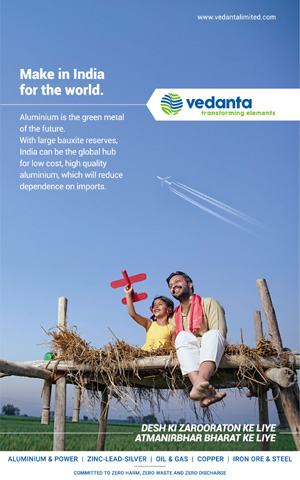Policy needed to ensure airlines maintain 4-6 months of cash reserves: CAPA CEO

MUMBAI,OCT. 16: Indian airlines industry will continue to be sick unless there are policies in place to ensure that the operators have at least 4-6 months of cash kept in reserves for continuity of operations, according to global consultancy and aviation firm CAPA.
CAPA said it estimates the domestic airline industry could post losses to the tune of USD 1.4-1.7 billion or more losses this fiscal.
The two listed airlines, IndiGo and SpiceJet, have already reported losses of Rs 1,064.30 crore and Rs 789 crore, respectively, in the April-June quarter of the current fiscal.
“Financial fitness is a fundamental criterion of operating (globally) – India is the only country where technically insolvent companies can expand, can continue to operate,” Kapil Kaul, CEO for South Asia at CAPA, said at an industry event in Mumbai recently.
He said going by the global practice, the airlines have to ensure that they have at least 4-6 months of cash reserves when no revenue is coming in while their air operator permits are also renewed every year, while in India, the AOP comes for renewal only after 5-odd years.
“We don’t have a financial assessment. We do have it only when the airlines are in almost the last stage of operations. So through a structure of policy-making you need to ensure that 4-6 months of cash, depending upon the size of the business, must be fundamental in terms of operating. If you don’t have that (the framework) we will continue to have a sick industry,” Kaul stated.
He emphasised that if such a best practice is not adopted at this stage when some of the airlines are infusing capital through various funding instruments, everything in the circle will go out of hand.
He noted that the airlines industry was unviable even before the emergence of the pandemic as barring one, no other airline had the cash on hand for more than 15 days of operations.
Covid had an unprecedented impact on the sector, which nobody was prepared for, resulting in USD 7-8 billion of losses, he added.
“This fiscal we will be looking at USD 1.4-1.7 billion losses or possibly more,” Kaul said.
For a capital-starved industry which is mostly negative net worth where getting funds is very tough, these numbers call for radical measures and a different strategy, he noted.
“The more we celebrate profit-less growth, the more we will be away from the kind of reforms the sector requires. We continue to play around at the edges, not looking deep enough to change the sector,” Kaul said.
The Covid impact is going to be long-term and structural and such losses with a very inadequate balance sheet can’t be washed away by recovery to pre-covid, Kaul asserted.
“In many ways, pre-Covid was easy to navigate. Because every participant ensured its strategic cooperation. In fact, the whole value chain such as staff, lenders, vendors and lessors were very cooperative,” he said.
“Now that we have come out of the Covid, and start looking at the next year, you are entering post-Covid environment which, in my assessment, is going to be more hostile with no room for cooperation,” he said.
-PTI






